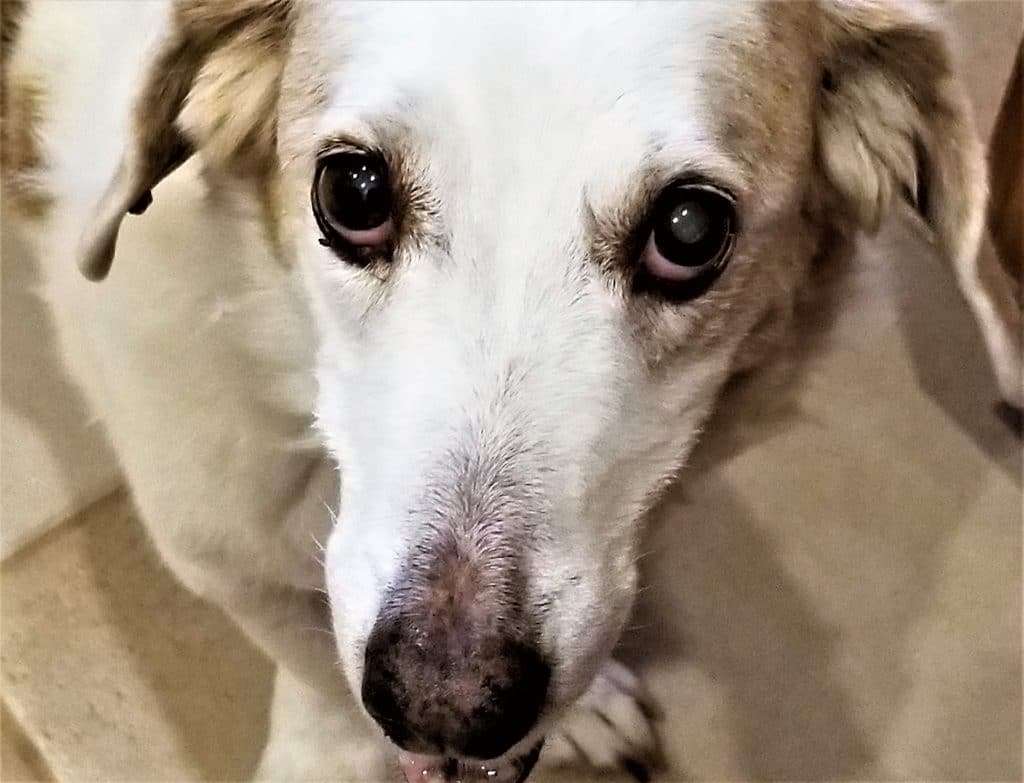Dealing with a canine cancer diagnosis can be overwhelming and emotional for pet owners. It is important to approach the situation with a level head and gather information from veterinary oncologists to understand the available treatment options. While treating cancer in dogs can be challenging, focusing on your dog’s quality of life, monitoring their progress closely, and providing extra support can make the journey a little easier. This article will provide seven tips for dealing with canine cancer that can help pet owners navigate this difficult time.
Contents
- 1 Different Types Of Canine Cancer
- 2 Tips For Dealing With Canine Cancer
- 3 Consult With A Veterinary Oncologist
- 4 Consider All Treatment Options
- 5 Focus On Your Dog’s Quality Of Life
- 6 Monitor Your Dog Closely
- 7 Provide Extra Support
- 8 Take Care Of Yourself
- 9 Make The Most Of Your Time Together
- 10 Remember That Prevention Is Key With Canine Cancer!
Different Types Of Canine Cancer

Cancer can be a devastating diagnosis for anyone, but it can be especially heartbreaking when it comes to your furry friend. There are several types of canine cancer, each with its own symptoms and treatment options. Lymphoma is perhaps the most common, affecting the lymph nodes and causing swelling and discomfort. Osteosarcoma is a type of bone cancer often seen in larger breeds and can be incredibly aggressive.
Hemangiosarcoma affects the blood vessels and can cause internal bleeding, making it difficult to diagnose until it is quite advanced. With early detection and proper treatment, many dogs can beat cancer. Still, educating yourself about the various types is important to provide the best possible care for your furry family members.
Tips For Dealing With Canine Cancer
It’s no secret that dealing with dog cancer can be a trying experience. Here are seven tips for pet owners to help them navigate the difficult journey:
Consult With A Veterinary Oncologist

Dealing with canine cancer can be incredibly difficult and overwhelming. However, consulting with a veterinary oncologist can provide clarity and understanding during this tough time. These specialized veterinarians have extensive knowledge and experience in diagnosing and treating cancer in animals, making them the ideal resource for invaluable information regarding your dog’s diagnosis and available treatment options. By seeking their expertise, you can feel more confident in making informed decisions about the best course of action for your beloved pet. Remember, you are not alone in this fight against cancer; there is always hope for a positive outcome.
Consider All Treatment Options

When deciding on the best treatment options, it’s important to consider all available options and have an open and honest discussion with your veterinarian and oncologist. Depending on the type and stage of cancer, treatment options may include a combination of surgery, chemotherapy, radiation therapy, and immunotherapy.
It’s also essential to consider your dog’s age, overall health, and quality of life. By exploring all available options, you can make the best decision for your furry friend and ensure that they receive the care and treatment they need to fight this disease.
Focus On Your Dog’s Quality Of Life

Dealing with canine cancer can be daunting, but focusing on your dog’s quality of life is essential. It’s natural to want to cure cancer, but the primary goal should be to keep your furry friend as comfortable and happy as possible. This may mean adjusting and changing your lifestyle and expectations, but it’s all worth it to give your dog the best possible care.
Don’t hesitate to seek advice and guidance from your veterinarian, but always keep your dog’s quality of life at the forefront of your decisions. With the right approach, you can give your dog the love and support they need during this difficult time.
Monitor Your Dog Closely

One of the most important tips for managing your furry friend’s health is to monitor them closely. Keep a watchful eye on their behavior, appetite, and activity level, and make a note of any changes you observe. Whether they are responding well to treatment or experiencing setbacks, reporting all updates to your veterinarian is critical.
Regular monitoring allows you to spot any concerning changes early on, and your vet can make necessary adjustments to their treatment plan based on their progress. By staying attentive and proactive, you can provide your dog with the best possible care during its battle with cancer.
Provide Extra Support

Canine cancer is a devastating diagnosis, not just for pet owners but for the furry friends themselves. Treatment can bring on a barrage of side effects, from nausea to fatigue, making your dog feel worse before they get better.
During this time, it’s important to provide your pup with extra love and support. They may need extra snuggles, a gentle hand to help them move around, or even an extra belly rub. Remember to be patient and understanding, as your pup may not act as usual. With your care and attention, you can help them through this difficult time and show them how much you love them.
Take Care Of Yourself

As you care for your fur baby, it is essential not to overlook your needs. Dealing with canine cancer can have a significant impact on both your emotional and physical well-being. It can be a challenging and overwhelming experience that requires immense strength and patience. It’s crucial to seek support from loved ones, friends, family, or even a therapist who understands and empathizes with what you’re going through.
Joining a support group for pet owners dealing with cancer can also provide you with a community that shares your experiences and can provide comfort and solace during difficult times. Remember that your well-being is paramount, and taking care of yourself will allow you to better care for your pet.
Make The Most Of Your Time Together

For dog owners dealing with canine cancer, it’s important to cherish the time you have left with your furry friend. One way to make the most of this time is by planning fun activities and adventures you can enjoy together. Whether it’s a trip to the beach or a hike in the mountains, these experiences create lasting memories that you can hold onto forever.
Don’t forget to capture those memories with lots of pictures and videos, so you can look back on all the happy times you shared with your pup. While dealing with cancer is never easy, making the most of your time together can help you find joy and comfort in each other’s company.
Remember That Prevention Is Key With Canine Cancer!
In conclusion, dealing with canine cancer can be a challenging and emotional experience for pet owners. However, by consulting with veterinary oncologists, considering all treatment options, focusing on your dog’s quality of life, monitoring them closely, providing extra support, taking care of yourself, and making the most of your time together, you can navigate this difficult journey with your furry friend. Remember to cherish the moments you have together and seek support when needed. With the right care and treatment, you can provide your dog with the best possible quality of life during their battle with cancer.


